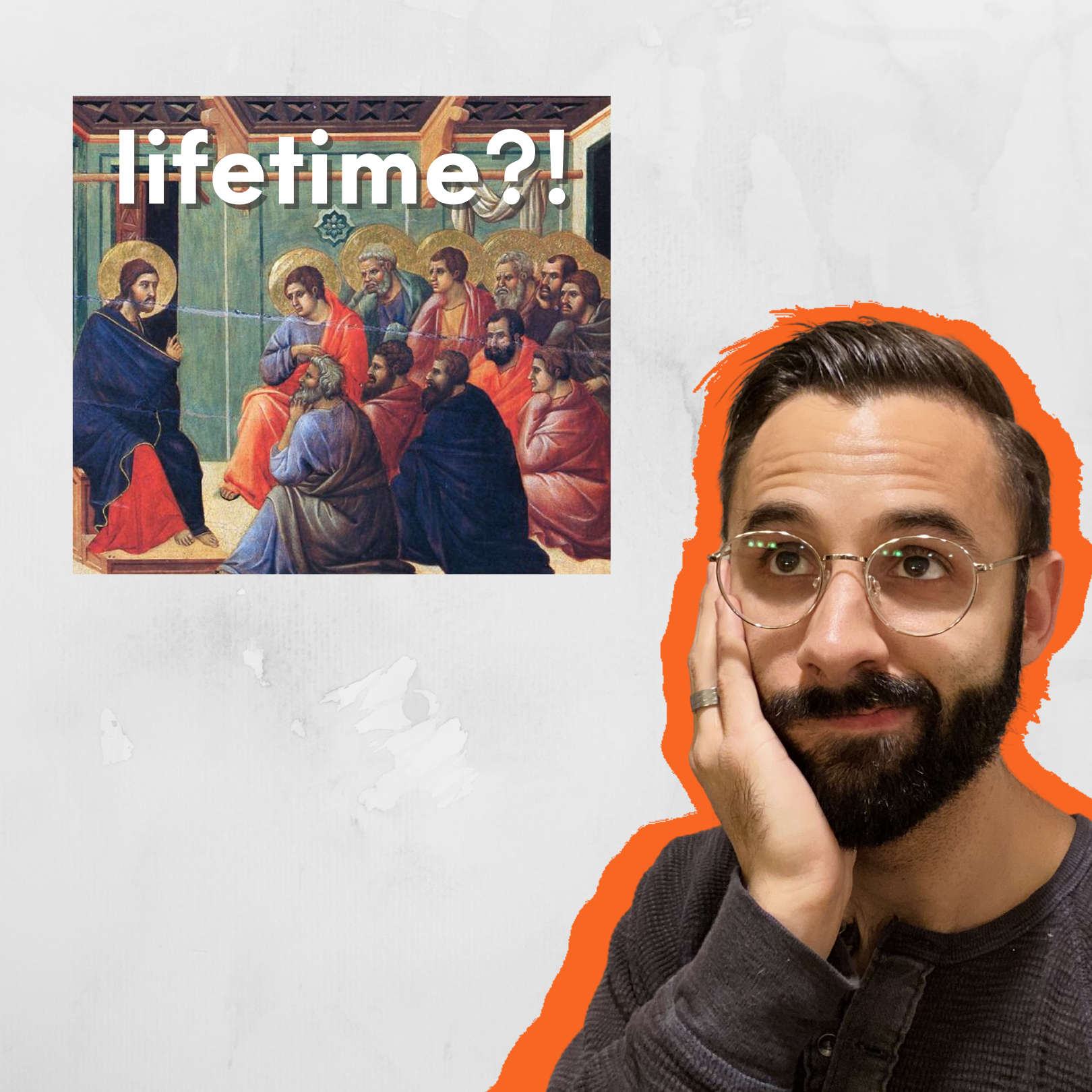Jesus & Paul Taught Lifetime Singleness
Jesus+Paul praised permanent celibacy = GAME-CHANGER
I recently grabbed dessert with a respected theologian in town for denominational business. We narrowed down our differing theologies of committed singleness to one question:
"Are Jesus and Paul particularly talking about permanent singleness in Matthew 19 and 1 Corinthians 7?"
She admitted that a "yes" to this question would be a game-changer.
Here's 5 reasons why Jesus and Paul *were* particularly talking about permanent singleness:
1️⃣ In Matthew 19 Jesus speaks to disciples nearing marrying age about passing on marriage and stepping into a singleness beyond their current state. Jesus compares this calling to "eunuchs"—an irreversible state without spouse or children. The Church has consistently understood that Jesus most likely used this culturally-loaded word to communicate the permanent nature of kingdom singleness.
2️⃣ In Luke 18:28-30 Jesus promises 100-fold family in this life and the next to those who give up a spouse and kids for the sake of the kingdom. We can't imagine Jesus providing this 100-fold blessing to someone who has only temporarily given up the prospect of marriage and children, only to later get married.
3️⃣ In 1 Corinthians 7 Paul praises committed celibacy four times and says it's better to remain in gifted singleness for the kingdom.
4️⃣ In 1 Timothy 5:5-15 Paul commends a pledge to celibacy and a community of celibates and teaches that abandoning that commitment is a sin.
5️⃣ Scholarship shows that the early Church (those who learned directly from the Apostles and their immediate successors) unanimously understood Jesus and Paul to be commending a permanent giving-up of marriage. We’re talking about people like St. Clement of Rome (the disciple and successor of Peter the Apostle), St. Ignatius of Antioch (the disciple of John the Apostle), St. Justin the Martyr, St. Athenagoras of Athens, Polycrates of Ephesus, Tertullian, St. Cyprian of Carthage, Clement of Alexandria, Origen, and St. Methodius of Olympus. (1,2,3)
1. James E. Goehring, Ascetics, Society and the Desert (Harrisburg, PA: Trinity Press International, 1999)
2. Chapter 1 of my The Story of Monasticism (Baker Academic, 2015)
3. Vincent Desprez, "Christian Asceticism between the New Testament and the Beginning of Monasticism," American Benedictine Review 42 (1991): 163-178, 334-344 and 356-373
What difference would it make if we believed Jesus and Paul were particularly talking about permanent singleness? How would that be a game-changer?
Churches that claim to teach what the Bible says would need to first teach about permanent celibacy when referencing the singleness passages.
Churches would need to invite every straight young adult to consider committing to lifetime singleness for the kingdom.
Churches would need to celebrate commitments to permanent celibacy (and anniversaries) with as much reverence and revelry as lifetime marriage.
Churches would need to hire leaders committed to the kingdom singleness of Jesus and Paul.
Churches would need to cultivate intentional Christian communities where lifetime celibates find lifelong, lived-in family.
And then Christians committed to permanent singleness could finally dream about single-minded kingdom work, not just for a few years or a decade, but for a lifetime.
In short, when we accept that Jesus and Paul were talking about permanent celibacy, churches must preach what the Bible particularly says, honor and value lifetime kingdom singles for doing what the Bible particularly promotes, and offer permanent celibates the human family they need to faithfully live out what the Bible particularly commends.
